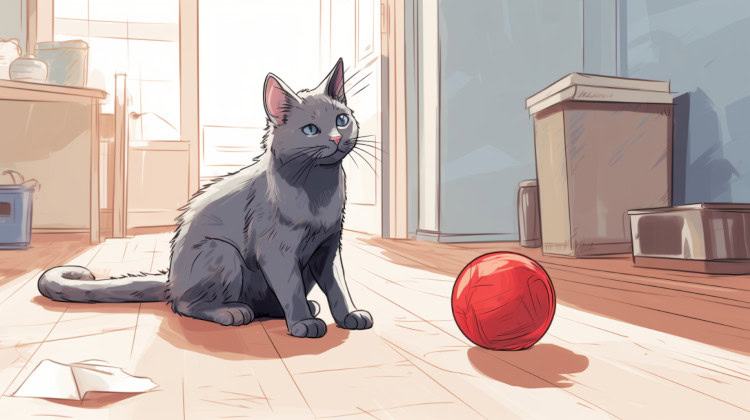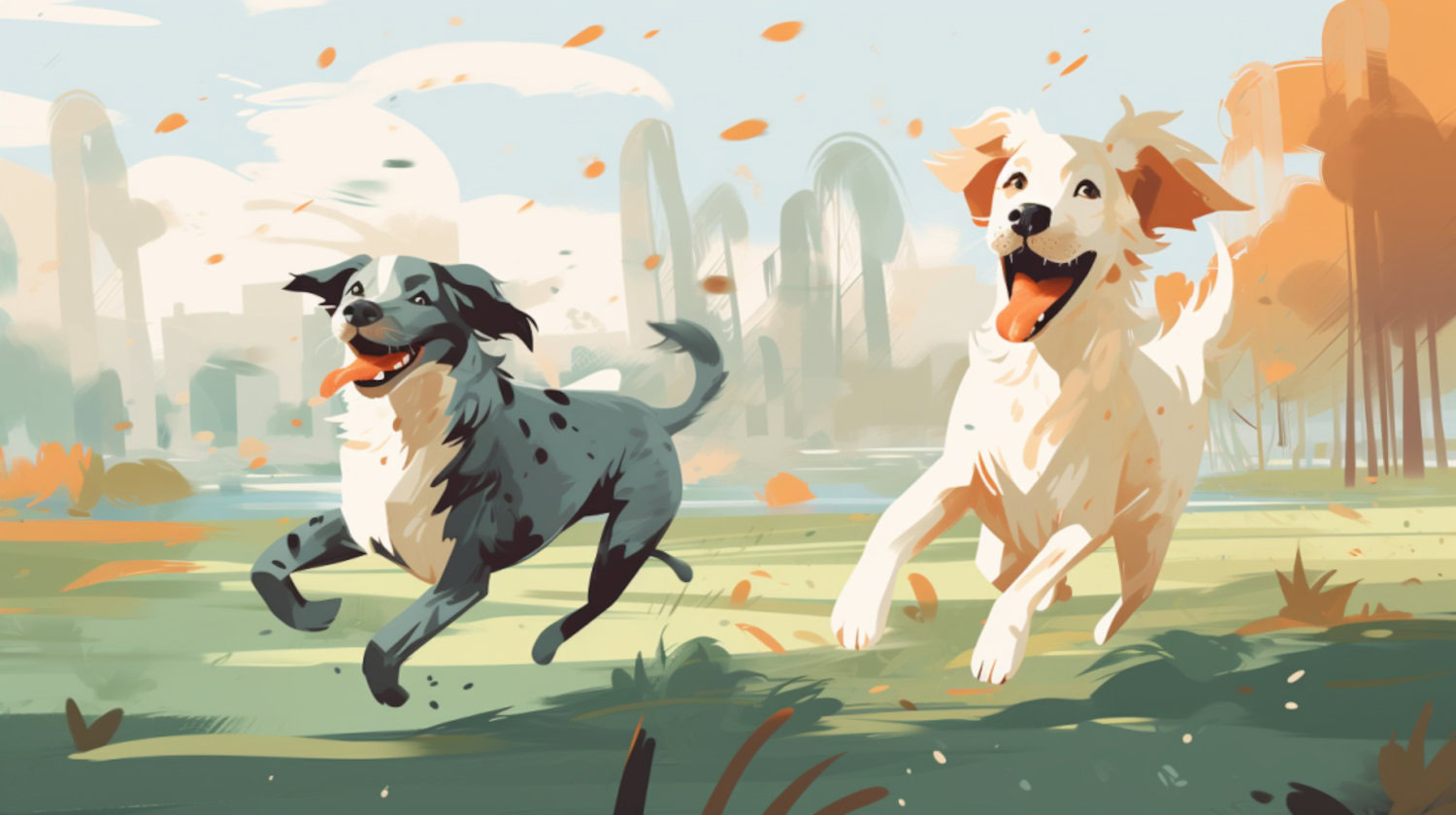Key Takeaways
- THC is harmful to cats, even at relatively small amounts.
- Higher amounts of THC can pose life-threatening risks for cats.
- Secure your cannabis products out of your cat’s reach, and smoke in a well-ventilated space away from them.
As cannabis becomes increasingly common, questions about its impact on our furry friends have grown, too. Cats, with their curious natures, may find themselves exposed to cannabis. Be it through secondhand smoke, edibles left out in the open, or even a well-meaning owner.
But what happens when cats are exposed to cannabis? Can cats get high? Is it safe for them?
While cannabis may provide benefits for humans, its effects on cats are very different. Understanding these effects is critical for keeping a feline companion safe and healthy. Knowing how THC affects cats can help you spot the signs of consumption and take the appropriate steps promptly to keep your pet safe. As always, it’s important to follow the advice of your veterinarian when giving your pet any substance.
Is Cannabis Bad for Cats?
Yes, cannabis, in particular THC, can be harmful to cats.
Cats process THC very differently from humans. Unfortunately, even small amounts can lead to severe side effects, from altered behavior to life-threatening symptoms.
A primary concern for cats is secondhand cannabis smoke. Cats living in households where consumers smoke may inhale THC, which can build up in their system. Compounding the issue is a cat's grooming behavior. After smoke particles settle on their fur, they may ingest toxins or carcinogens while cleaning themselves.1
Can Cats Get High? How Does THC Affect Them?

The consequences of cannabis consumption with cats can range from mild discomfort to severe health risks. The primary culprit is THC, the psychoactive compound in cannabis. While humans may enjoy its effects, cats are far more sensitive to THC. They're more likely to experience symptoms like disorientation, anxiety, excessive vocalization, and even tremors and seizures. In extreme cases, THC exposure may lead to coma or life-threatening complications.1
Cannabis products, such as edibles, concentrates, and flower, pose unique risks. If you use cannabis products at home, store them securely to prevent accidental ingestion.
Can You Smoke Weed Around Cats?
While it may seem harmless, it’s best not to smoke weed around cats.
Secondhand cannabis smoke can harm cats. Unlike humans, cats can’t avoid inhaling smoke or its lingering residue, which puts them at risk of THC exposure. Over time, smoke particles can also settle on their fur, which they can ingest while grooming. This exposure increases the risk of toxicity and long-term issues, including certain cancers.1
Cannabis consumers with cats may want to opt for well-ventilated areas away from their pets or smoke outside to remove any chance of exposure.
Signs of Cannabis Toxicity in Cats

When cats are exposed to cannabis, primarily THC, they may experience severe negative symptoms. The effects depend on how much they ingest or inhale, but even small amounts can cause problems.
Common signs of cannabis toxicity in cats include:
- Trouble walking or balancing (ataxia)
- Acting anxious, agitated, or overly vocal
- Excessive drooling (hypersalivation)
- Vomiting or diarrhea
- Unusual heart rates (too slow or too fast)
- Shaking or seizures
- Low body temperature (hypothermia)
- Wide, dilated pupils (mydriasis)
- Being unusually sleepy or, in severe cases, unconscious
Cats are also at risk from secondhand smoke. When smoke settles on their fur, cats ingest harmful chemicals while grooming. This can lead to even more exposure and increase their chances of developing long-term health issues like oral cancer.1
If your cat shows any of these signs, contact a veterinarian immediately.
Is CBD Safe for Cats?

CBD, the non-intoxicating compound in cannabis, is often marketed as a natural remedy for pets, including cats. But is it safe? In short, maybe.
Recent studies suggest that CBD may be a safer alternative to THC for cats — as long as it’s used responsibly and under veterinary guidance.
According to research, CBD was generally well-tolerated in cats, even at higher doses. In the study, CBD oils caused fewer side effects than oils containing THC or a mix of CBD and THC. Common side effects of CBD include mild digestive issues, lethargy, or low body temperature. Importantly, cats given pure CBD showed fewer behavioral changes, such as vocalization or agitation, than those exposed to THC-containing oils.2
While CBD appears to have a better safety profile for cats, it’s still important to use it carefully. Always choose high-quality CBD products designed for pets, and follow dosing recommendations. Never give your cat products containing THC, as even small amounts can be harmful.
If you’re considering CBD for your cat, talk to your veterinarian first. They can help you determine the right dose and ensure the safety of your chosen product.
What to Do if Your Cat Consumes THC

If your cat consumes THC, act quickly. Even a small amount of THC can cause serious side effects in cats, so it’s best not to wait and see if symptoms develop. Here’s what you should do:
Stay Calm
Your cat may pick up on your stress, so stay calm and focused.
Monitor for Symptoms
Look for signs of THC toxicity, such as difficulty walking, excessive drooling, vomiting, or unusual vocalization. Severe symptoms like seizures or extreme lethargy require immediate action.
Call Your Veterinarian
Contact your vet or an animal poison control hotline immediately. Be honest about what your cat was exposed to so they can provide the best care.
Follow Veterinary Advice
Depending on the severity of your cat's symptoms, your vet may recommend bringing it in for evaluation or suggesting supportive care at home. Never treat your cat with home remedies or induce vomiting without professional guidance.
Keep Them Comfortable
While waiting for veterinary care, keep your cat in a quiet, safe space. Minimize stimulation and ensure that your cat has access to water.
What Happens if a Cat is High?
When a cat is high, the effects can range from mild to severe, depending on the amount of THC consumed. Cats may appear disoriented, uncoordinated, or unusually vocal. Other signs include dilated pupils, trembling, or excessive drooling. In more severe cases, cats can become lethargic, experience seizures, or even fall into a coma.
Even if your cat seems “fine” after exposure, it’s important to consult a vet to ensure no long-term health risks.
Cannabis Safety for Cat Owners

While humans may enjoy the effects of cannabis, it’s not safe for cats, especially when THC is involved. Cats are highly sensitive to THC, and exposure may lead to serious health issues, including toxicity or long-term complications.
If you’re a cannabis consumer, it’s essential to take steps to protect your cats.
Store Cannabis Securely
Keep all cannabis products, including edibles, oils, and flower, in a secure place that your cat can’t access. This prevents accidental ingestion, especially with products that may smell or taste appealing to pets.
Avoid Smoking Near Your Cat
Secondhand smoke may harm your cat over time. If you smoke, do so in a well-ventilated area or outside, away from your pet.
Use CBD with Caution
If you’re exploring CBD as a potential wellness option for your cat, consult your vet first. Always choose high-quality, pet-specific products with clear dosing instructions.
Be Informed and Prepared
Familiarize yourself with the signs of cannabis toxicity in cats and know how to respond if exposure occurs. Acting quickly can make all the difference in your cat’s recovery.
Your cat’s health and safety should always come first. By being mindful of how cannabis affects pets and taking simple precautions, you can enjoy your cannabis responsibly while keeping your furry companion safe and sound.
References
- Janeczek A, Zawadzki M, Szpot P, Niedzwiedz A. Marijuana intoxication in a cat. Acta Vet Scand. 2018;60(1):44. Published 2018 Jul 11. doi:10.1186/s13028-018-0398-0 ↩︎
- Kulpa JE, Paulionis LJ, Eglit GM, Vaughn DM. Safety and tolerability of escalating cannabinoid doses in healthy cats. Journal of Feline Medicine and Surgery. 2021;23(12):1162-1175. doi:https://doi.org/10.1177/1098612x211004215
↩︎
The information in this article and any included images or charts are for educational purposes only. This information is neither a substitute for, nor does it replace, professional legal advice or medical advice, diagnosis, or treatment. If you have any concerns or questions about laws, regulations, or your health, you should always consult with an attorney, physician or other licensed professional.




